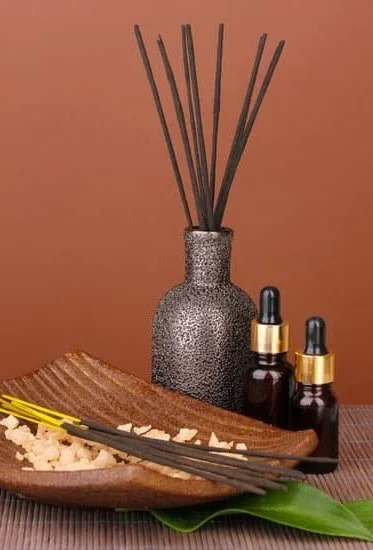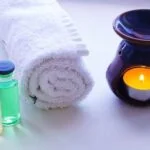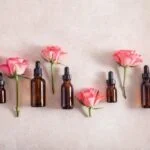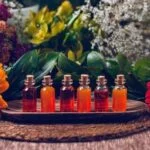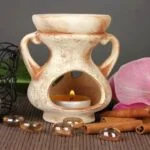Aromatherapy is a practice that has gained popularity in recent years for its potential to promote relaxation and well-being. But how did aromatherapy start? This article will delve into the early history of aromatherapy, exploring its ancient origins, evolution through the Middle Ages and Renaissance, and its modern developments.
Aromatherapy is the use of essential oils and plant extracts to enhance physical and psychological well-being. It is often used in conjunction with traditional medical practices as a complementary therapy.
The origins of aromatherapy can be traced back to ancient civilizations such as Egypt, China, and India, where aromatic plants and their extracts were used for various purposes including medicinal, spiritual, and cosmetic reasons. During the Middle Ages, aromatherapy was closely linked to herbalism and alchemy, with essential oils being used for their healing properties. The Renaissance saw a revival of interest in aromatherapy as it became integrated into medical practices in Europe.
In the 20th century, essential oil distillation techniques were established, leading to increased availability of essential oils and the growing popularity of aromatherapy in alternative medicine. Scientific research has also provided evidence supporting the effectiveness of aromatherapy in promoting relaxation and overall well-being. Today, aromatherapy is used in various practical applications such as spa treatments, home remedies, and holistic healing practices.
Ancient Origins
Aromatherapy has a rich and fascinating history that dates back to ancient civilizations such as Egypt, China, and India. These early cultures recognized the therapeutic properties of aromatic plants and used them in various ways for healing and spiritual rituals. Here are some key points about the ancient origins of aromatherapy:
- Ancient Egypt: The use of aromatic oils and herbs can be traced back to ancient Egypt, where they were used in religious ceremonies, medicine, and embalming practices. Egyptians believed in the power of essential oils for both physical and emotional healing. They also used aromatic substances for cosmetic purposes and personal hygiene.
- Ancient China: Aromatherapy also has roots in ancient Chinese culture, where it was an integral part of traditional medicine. Chinese medical practitioners utilized aromatic herbs and oils to balance the body’s energy flow, or qi, as well as to treat various ailments. The use of fragrant plants was also deeply connected to spirituality and meditation practices in ancient China.
- Ancient India: In Ayurvedic medicine, which originated in ancient India, the use of aromatic oils and herbs has been documented for thousands of years. Ayurveda considers aromatherapy as a holistic approach to health and wellness, incorporating the use of plant-based essential oils for their therapeutic effects on the mind, body, and spirit.
The early history of aromatherapy in these civilizations laid the foundation for its continued practice and development throughout the ages. Understanding how did aromatherapy start provides insight into its enduring significance in today’s society.
The Middle Ages
During the Middle Ages, aromatherapy played a significant role in society, particularly in the realms of medicine and healing. In this era, the use of aromatic oils and herbal extracts was closely intertwined with the practices of herbalism and alchemy, forming the foundation for the development of modern aromatherapy.
Herbalism and Aromatherapy
In medieval times, herbalism was a widely practiced form of medicine, with plant-based remedies being the primary source of treatment for various ailments. Aromatherapy became an essential aspect of herbalism, as healers recognized the therapeutic properties of aromatic plants and their ability to promote physical and emotional well-being. Essential oils were extracted from these plants through methods such as distillation and maceration, and they were used in conjunction with medicinal herbs for their healing effects.
Aromatics in Alchemy
Alchemy, a precursor to modern chemistry, also played a role in shaping the practices of aromatherapy during the Middle Ages. Alchemists sought to transform base metals into gold, but their experiments with different substances also revealed the profound effects of aromatic compounds on the human body. This intersection between alchemy and aromatherapy led to further exploration of essential oils and their potential uses for holistic healing.
The Middle Ages thus laid the groundwork for how aromatherapy would evolve as an integral part of traditional medicine. The blending of herbalism and alchemy with aromatic plant extracts set the stage for continued advancements in understanding and harnessing the therapeutic benefits of essential oils.
The Renaissance
During the Renaissance, there was a significant revival of interest in aromatherapy and its integration into medical practices. This period marked a resurgence in the study of ancient texts and a renewed appreciation for the medicinal properties of essential oils. During this time, scholars and physicians began to explore the use of aromatics for their therapeutic benefits, leading to the development of more refined techniques for distilling essential oils.
Key Developments During the Renaissance
- Rediscovery of ancient texts: Scholars during the Renaissance rediscovered and translated classical texts on herbal medicine and aromatherapy, such as those attributed to Dioscorides and Galen.
- Integration into medical practices: Physicians began to incorporate aromatherapy into their medical treatments, using essential oils to address various health conditions and promote overall well-being.
The Influence of Paracelsus
One key figure in the revival of aromatherapy during the Renaissance was Paracelsus, a Swiss physician who is often credited with introducing the concept of “spagyric medicine,” which involved using plant-based medicines, including essential oils, for healing purposes. Paracelsus’ teachings contributed to a growing awareness of the therapeutic potential of aromatic substances.
The Rise of Aromatherapy in Medical Literature
During the Renaissance, there was also an increasing amount of literature dedicated to aromatherapy and its applications in medicine. Notable physicians and herbalists published works that emphasized the importance of using aromatic substances for their curative properties, further solidifying the role of aromatherapy in medical practices during this period.
Overall, the Renaissance era played a crucial role in reintroducing and expanding upon the use of aromatherapy as a legitimate form of medical treatment. The exploration and integration of aromatic substances into medical practices during this time set the stage for further advancements in aromatherapy throughout history.
Modern Developments
Aromatherapy has seen significant evolution in the 20th century, particularly in terms of the establishment of essential oil distillation techniques and its growing popularity in alternative medicine. The use of essential oils, which are extracted from various parts of plants through methods such as steam distillation or cold pressing, became more refined during this period. This led to a greater understanding of the therapeutic properties of different essential oils and their potential applications in promoting health and well-being.
One significant development in the 20th century was the founding of the International Federation of Aromatherapists (IFA) in 1985, which set professional standards for aromatherapy practice and education. This helped to legitimize aromatherapy as a recognized holistic healing practice and contributed to its increasing acceptance within conventional healthcare systems.
The latter part of the 20th century also witnessed a surge in public interest in alternative medicine, including aromatherapy. As people sought out natural and holistic approaches to wellness, the demand for essential oils and aromatherapy products grew substantially. This trend continues today, with aromatherapy being widely incorporated into spa treatments, home remedies, and other holistic healing practices worldwide.
| Development | Description |
|---|---|
| Essential Oil Distillation Techniques | Refinement and improvement of methods for extracting therapeutic essential oils from plants |
| International Federation of Aromatherapists (IFA) | Establishment of professional standards for aromatherapy practice and education, contributing to its recognition as a legitimate holistic healing practice |
| Increased Popularity | Rising demand for aromatherapy products and treatments as part of the broader interest in alternative medicine and natural health approaches |
Scientific Research
Aromatherapy has a long and rich history, with evidence of its use dating back to ancient civilizations such as Egypt, China, and India. However, it wasn’t until the 20th century that scientific research began to uncover the potential benefits of this practice in promoting relaxation and overall well-being. Recent studies have provided compelling evidence supporting the effectiveness of aromatherapy, shedding light on its mechanisms of action and potential therapeutic applications.
One area of scientific research that has gained attention is the impact of aromatherapy on mood and emotions. Studies have shown that certain essential oils, such as lavender and rosemary, can have calming and uplifting effects when inhaled or used in massage therapy. Researchers believe that these effects may be attributed to the interaction between aromatic compounds in the oils and the limbic system, which is the part of the brain responsible for emotions and memory.
In addition to its psychological benefits, aromatherapy has also been studied for its potential physiological effects. For example, research has demonstrated that inhaling certain essential oils can have anxiolytic (anxiety-reducing) effects, as well as decrease heart rate and blood pressure.
These findings provide valuable insights into how aromatherapy can be integrated into holistic approaches to health and wellness. Overall, recent scientific studies have added a new layer of understanding to the age-old practice of aromatherapy, validating its role in promoting relaxation and overall well-being.
| Research Findings | Impacts |
|---|---|
| Certain essential oils have calming and uplifting effects | Improves mood and emotional well-being |
| Inhaling essential oils can reduce anxiety | Inhibits stress response in the body |
| Aromatherapy can decrease heart rate and blood pressure | Promotes physiological relaxation |
Practical Applications
Aromatherapy has become increasingly popular in today’s society, with a wide range of practical applications that cater to different needs. From spa treatments to home remedies and holistic healing practices, aromatherapy offers a natural and effective approach to promoting overall well-being. This section will delve into the various ways aromatherapy is used today, shedding light on its versatility and widespread appeal.
Spa Treatments
One of the most common and well-known uses of aromatherapy is in spa treatments. Aromatherapy massages, facials, and body wraps incorporate essential oils to enhance relaxation and rejuvenation. Whether it’s lavender for calming the mind, eucalyptus for respiratory relief, or rosemary for muscle tension, different essential oils are carefully selected to create a sensory experience that promotes both physical and mental well-being.
Home Remedies
Aromatherapy has also found its way into homes as a natural remedy for various ailments. Essential oils can be used in diffusers to purify the air and create a soothing atmosphere. In addition, they are often applied topically or inhaled for their therapeutic benefits, such as relieving headaches, improving sleep quality, or boosting immunity. Many people have turned to aromatherapy as an alternative or complementary treatment for common health issues.
Holistic Healing Practices
In holistic healing practices such as yoga, meditation, and acupuncture, aromatherapy plays a significant role in enhancing the overall experience. Certain scents can help create a conducive environment for mindfulness and relaxation during these practices. Aromatherapy is seamlessly integrated into the holistic lifestyle by promoting emotional balance and mental clarity. Its natural approach aligns with the principles of holistic healing that aim to address the individual as a whole – physically, mentally, and spiritually.
The use of aromatherapy in spa treatments, home remedies, and holistic healing practices exemplifies its enduring appeal and adaptability in modern society. As people continue to seek natural solutions for their well-being, aromatherapy remains a timeless practice rooted in ancient traditions but continuously evolving with scientific advancements and contemporary lifestyles.
Conclusion
In conclusion, the historical journey of aromatherapy reveals a rich and diverse tapestry of cultural influences and practical applications that have shaped its enduring appeal in contemporary society. From its ancient origins in civilizations such as Egypt, China, and India to its integration into medical practices during the Renaissance, aromatherapy has evolved and adapted over the centuries.
The Middle Ages saw the connection of aromatherapy with herbalism and alchemy, while the 20th century brought about essential oil distillation techniques and its increasing popularity in alternative medicine.
Despite its long history, aromatherapy continues to be relevant in modern times, with scientific research supporting its effectiveness in promoting relaxation and overall well-being. This ancient practice has found practical applications in various settings, including spa treatments, home remedies, and holistic healing practices. Its versatility and efficacy have made it a valuable tool for individuals seeking natural solutions for stress relief, emotional balance, and physical ailments.
As we continue to uncover the benefits of aromatherapy through ongoing research and exploration, it is evident that this ancient practice will remain an integral part of holistic health and wellness. By understanding how aromatherapy started and recognizing its historical significance, we can appreciate its enduring appeal in contemporary society as a time-honored tradition that enriches our lives through the power of scent and touch.
Frequently Asked Questions
How Did Aromatherapy Originate?
Aromatherapy originated thousands of years ago and is believed to have been practiced by the ancient Egyptians, Greeks, and Chinese. The use of aromatic plants and their oils for medicinal and therapeutic purposes has a long history across various cultures.
What Is the Theory Behind Aromatherapy?
The theory behind aromatherapy is based on the idea that inhaling the aroma of essential oils can stimulate brain function and impact emotions. It is also believed that these oils can be absorbed through the skin, creating physical benefits such as pain relief or relaxation.
Who Is the Father of Aromatherapy?
The father of aromatherapy is often considered to be René-Maurice Gattefossé, a French chemist who coined the term “aromatherapy” in the 1920s. He became interested in essential oils after experiencing their healing properties when he accidentally burned his hand and immersed it in lavender oil.

Are you looking for a natural way to improve your health and wellbeing?
If so, aromatherapy may be the answer for you.

